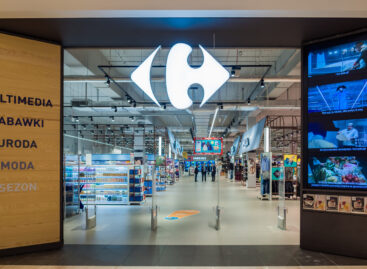Lidl’s “Deluxe” Move in Bakery: A New Layer in the Discounters’ Premiumization Strategy
Lidl is quietly premiumizing its bakery section – inviting shoppers to see rustic breads as crafted indulgence, not discount staples. Lidl has taken a notable step forward by introducing its premium private label “Deluxe” into the in-store bakery segment – a move not yet seen in many locations and one that signals a deeper evolution in its retail model.

Sebastian Rennack
international retail analyst
Aletos Retail
Traditionally, the “Deluxe” brand was reserved for seasonal packaged goods, particularly during high-traffic holiday periods like Christmas and Easter, when Polish shoppers are more willing to trade up and seek indulgent, higher-quality products. These festive periods historically favored supermarkets and hypermarkets over discounters, due to their broader assortment and more premium positioning.
To counter this, Lidl introduced the “Deluxe” label to temporarily bridge the quality gap during these seasons. Over the past few years, however, Premium labels based on the deluxe design have gradually found their way into other categories in Poland, most notably premium sausages. The decision to now extend it into the fresh bakery segment – an unpackaged category – is a strategic move that supports Lidl’s long-term transformation from hard discounter to full-service supermarket.
What is especially interesting is that the premium perception in bakery is built solely through signage: store-level communication placed above specific shelf units, reading Deluxe Pieczywo rzemieślnicze (Deluxe Artisan Bread). There is no special packaging to communicate the brand positioning, only the visual navigation elements above the open trays. Despite the rebranding, the items currently displayed – such as Chleb drwalski (Lumberjack bread), high-protein rolls, and multigrain or spelt loaves – are all part of Lidl’s regular assortment. No new SKUs have been introduced under the Deluxe brand yet.
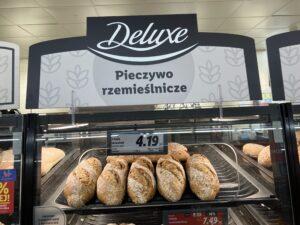
However, this move fits perfectly into Lidl’s broader bakery strategy, which has been evolving steadily over the past years. As described in my earlier analysis of Lidl’s “breadification” approach [insert hyperlink], the in-store bakery is a key strategic pillar for Lidl. It serves multiple functions: it is one of the strongest traffic drivers in the store, it delivers immediate freshness perception to the customer, and it builds a sensory connection that no packaged product can replicate.
On a competitive level, Lidl’s bakery also acts as a moat. It requires a relatively high one-time investment in equipment and layout – something not easily matched by smaller or less capitalized competitors. Once installed, however, Lidl has increasing flexibility to play with the assortment. In recent years, the chain has added more and more “in-out” promotional items to its bakery range, shifting from a static standard assortment to one that includes weekly novelty items. This promotional rotation increases shopper activation and helps drive repeat visits for a product range with the lowest price points across all of the discounted assortment – especially important in times where consumers look at every cent spent.
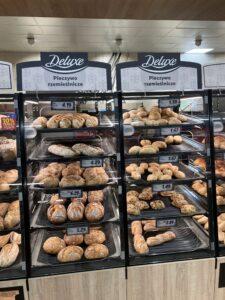
Furthermore, Lidl is integrating its bakery strategy with its digital ecosystem. In countries like the UK, bakery products are frequently used as incentives in the Lidl Plus loyalty program, with items even given away for free to members. This increases registration rates for Lidl Plus and connects one of the most emotionally appealing departments of the store with the retailer’s broader customer data and engagement strategy.
Lastly, Lidl’s ability to scale and control this offering is reinforced by vertical integration. Its parent company, Schwarz Group, owns Bonback, a German bakery production facility that supplies Lidl with a significant share of its bake-off items. The retailer secured its second industrial bakery in March 2024 by acquiring the former ARTiBack plant. The group is investing more than €300 million to expand this site, and construction of the new production and logistics facilities is set to begin in early 2026. This move is aimed to increase competitiveness of our production and support Lidl’s Quick expansion also commercially.
Lidl’s move to introduce “Deluxe” into the fresh bakery segment fits into a broader pattern of premium private label expansion. Recent examples include the relaunch of Bellarom Origins – a country-specific coffee line marketed toward connoisseurs, with single-origin beans from Brasilia, Guatemala, and Colombia. In the baby care segment, Lidl has adopted Lupilu Premium diapers featuring a golden-brown packaging design to signal elevated quality, clearly distinguished from the core range. Also here these are expanded as limited-edition in-out promotions for special SKUs.
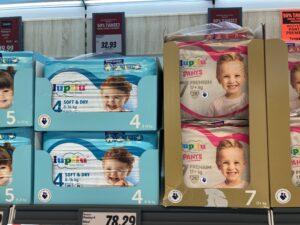
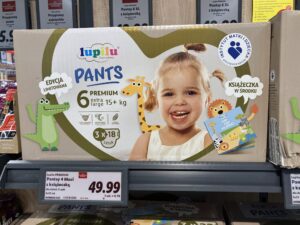
Similarly, the charcuterie and sausage category now features over a dozen premium-tier items available year round, many of which carry design cues from the Deluxe universe. Together, these examples underscore Lidl’s strategy to layer premium perception across categories while maintaining its price-value reputation.
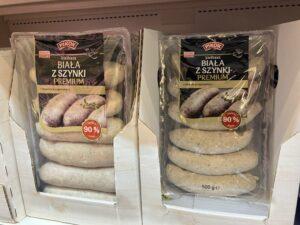
In short, the introduction of “Deluxe” signage in the bakery is not a standalone marketing move. It is the visible tip of a much deeper strategic approach – one that blends store investment, assortment rotation, vertical integration, and loyalty-driven digital engagement. And as Lidl continues to evolve, the in-store bakery remains one of its most powerful tools to shift customer perception from discounter to destination. In doing so, Lidl does not abandon its discount DNA – it stretches it, proving that premium can emerge even in the most value-driven spaces.
Related news
Related news
Festival buzz at the 60th anniversary EuroShop trade fair
🎧 Hallgasd a cikket: Lejátszás Szünet Folytatás Leállítás Nyelv: Auto…
Read more >


